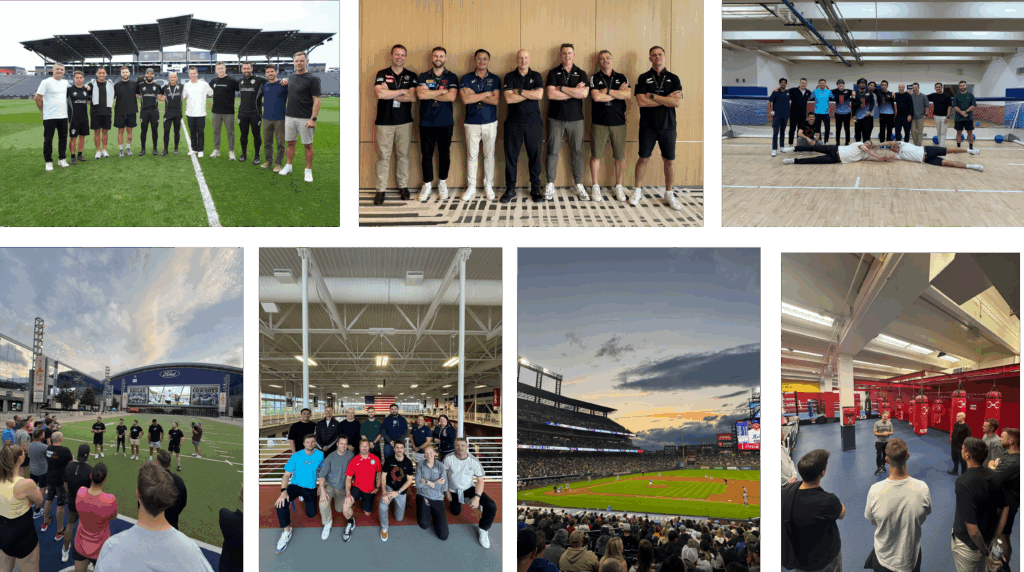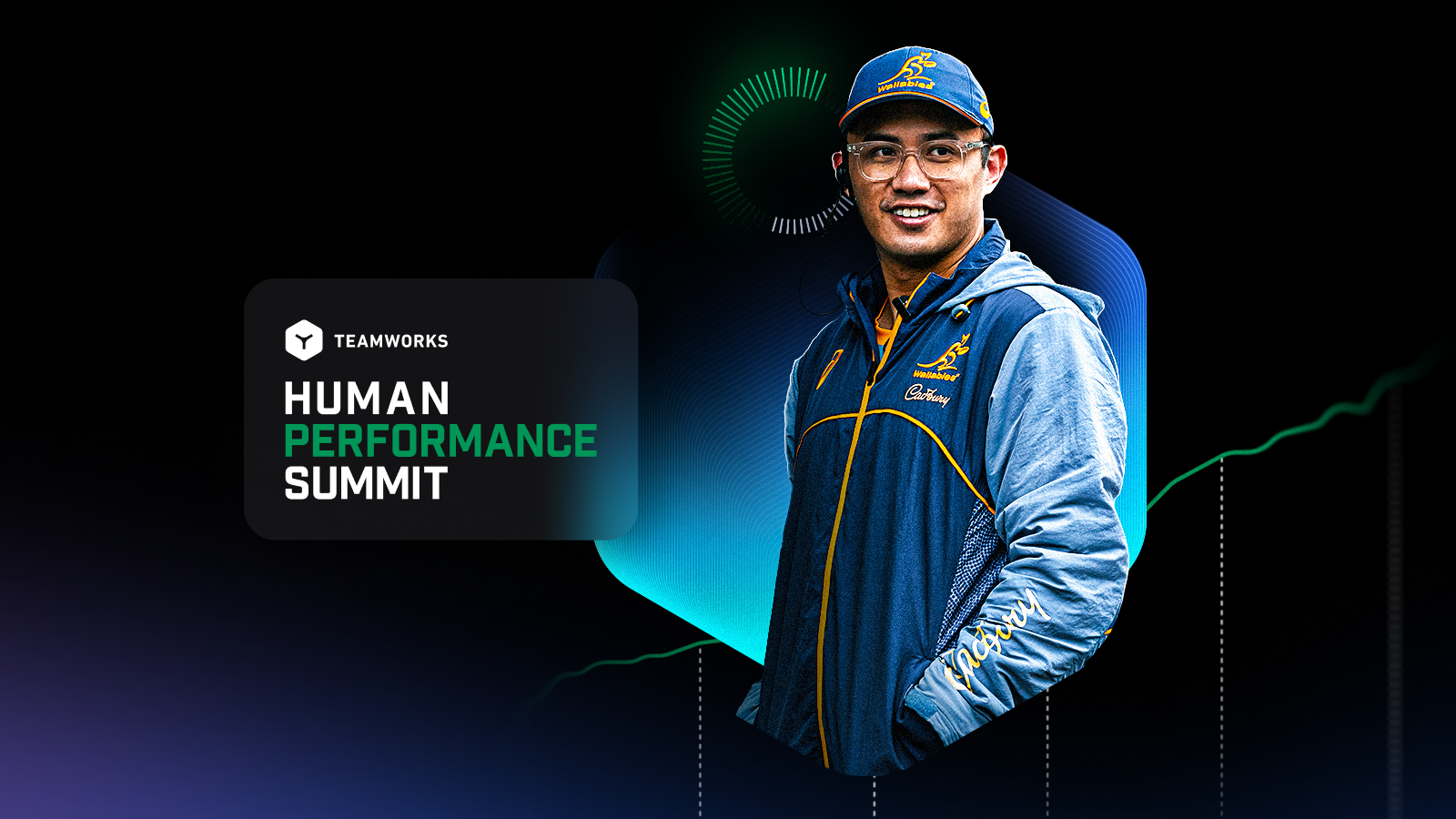A firsthand perspective from Matt Kan, Head of Performance Science, Data & Technology at Rugby Australia, following his visit to the Teamworks Human Performance Summit.
The 2025 Teamworks Human Performance Summit in Dallas brought together an impressive cross-section of expertise, from elite sport to emergency medicine. The sessions reinforced just how much our environments, systems, and habits shape sustained success. As I return to Rugby Australia, the question is less about whether we have the right people in the system and more about whether we’ve built the conditions for them to thrive.
Architecting Excellence: Culture First, Systems to Follow
The “Architecting Excellence” panel underscored a core principle: culture isn’t something you layer on top of operations, it’s the framework everything else relies on. Ian McKeown’s perspective on ecological dynamics and Steve Tashjian’s cautionary examples about “the a-hole zone” were reminders that managing talent is only part of the work. The real challenge is cultivating an environment where high standards are embedded long after the adrenaline of competition fades.
This point resonated when considering our own onboarding and induction practices. How clearly can our staff define our shared values and standards? Are we equipping people to live them day-to-day? Building a high-performance culture requires more than aspirational statements; it demands alignment between what we say, how we act, and the systems that hold us accountable.
From Silos to Systems: A Necessary Shift for Rugby
John Wagle’s presentation on “Silos to Systems” was a sharp illustration of how structure dictates outcomes. Many sports still operate in silos, with separate streams of data and practice that rarely converge. His argument—that every system delivers exactly what it’s designed to, prompted reflection on where our own processes fall short.
The concentric model he shared, with coordinated layers of support around the athlete, sets a standard worth aspiring to. It raises practical questions: Is our information flow genuinely integrated, or are we simply exchanging updates? Do our S&C, medical, psychological, and nutrition teams operate interdependently or in parallel? For Rugby Australia, bridging these gaps will be critical if we’re serious about moving from reactive management to proactive development.
Data, Trust, and Context
Several clubs showcased sophisticated data platforms, SL Benfica and Royal Antwerp among them. But the strongest insight wasn’t about dashboards or metrics; it was about trust. When athletes have access to their own information, they shift from passive recipients to engaged collaborators. This principle aligns with our ambition: to build a system where data fuels understanding, not just compliance.
Catarina Bajanca’s observation about balancing standardisation with nuance is particularly relevant for us. Our challenge is to scale insights across Super Rugby, Sevens, and national programs without diluting individual context. A “one-size-fits-all” approach will never fully capture the realities of diverse playing groups.
The Human Factor of High Performance
Dr. Dan Dworkis’ “Emergency Mind” session reframed how we think about recovery and reintegration. High-performance environments often focus exclusively on readiness and output, rarely acknowledging the need to “come home well.” Emotional resilience isn’t a soft concept, it’s a key driver of long-term performance and staff sustainability.
This raises important considerations for Rugby Australia. Are we building space for decompression and reflection, or inadvertently promoting burnout as the price of success? Ritualising regeneration and reintegration deserves as much attention as preparation and execution.
Priorities for the Year Ahead
The summit didn’t just highlight ideas, it crystallised a set of priorities:
- Revisit and Re-Embed Values: Reconnect with our vision, values, and standards, ensuring they’re not just articulated but integrated into daily work.
- Advance System Integration: Continue to advance our AMS, medical, and performance data streams from fragmented reporting to real-time collaboration.
- Clarify Roles and Decision-Making: Reduce ambiguity by providing clear responsibilities and shared anchors for judgement.
- Foster Interdependence: Build true collaboration across disciplines so that expertise combines into a cohesive whole.
- Support the Human Element: Embed practices that sustain emotional wellbeing and reinforce the long-term health of our people.
Overall, the summit offered both challenge and clarity. It’s evident that excellence isn’t simply about assembling experts, it’s about designing systems and cultures where expertise can compound. Our goal remains clear: elevate through unity, execute with discipline, and build an environment where people can perform, and recover, at their best.
Beyond the Summit: Extending the Learning & Networking

As we know from experience in Australia, traveling to the USA is no small journey, so the Teamworks team facilitated an extended 3-4 days of personal development where we travelled to Denver, Colorado and immersed ourselves with the USOPC, US Boxing Team and MLS team, Colorado Rapids.
With our traveling party of New Zealand Rugby, Collingwood FC and Melbourne FC both in AFL including Inspire Institute of Sport, the connection and learnings alone from such key innovators in their respective organisations created a growth mindset perspective for everyone to collaborate, share ideas and look for subtle ways of improvement.
Matt Kan
Head of Performance Science, Data & Technology
Rugby Australia

